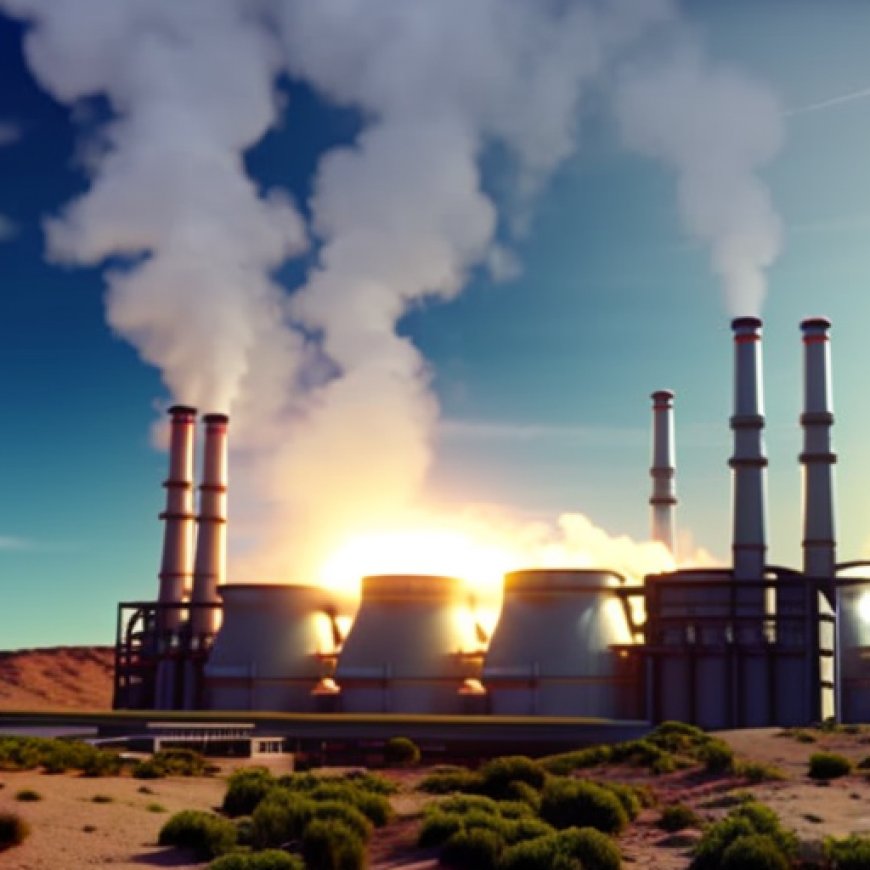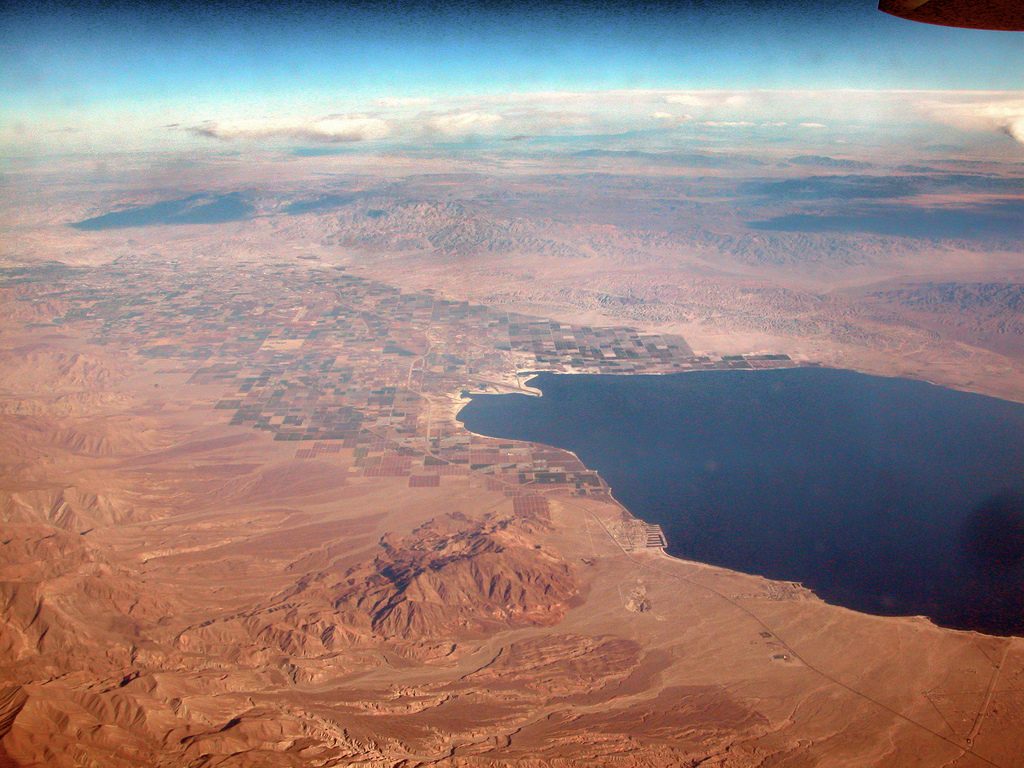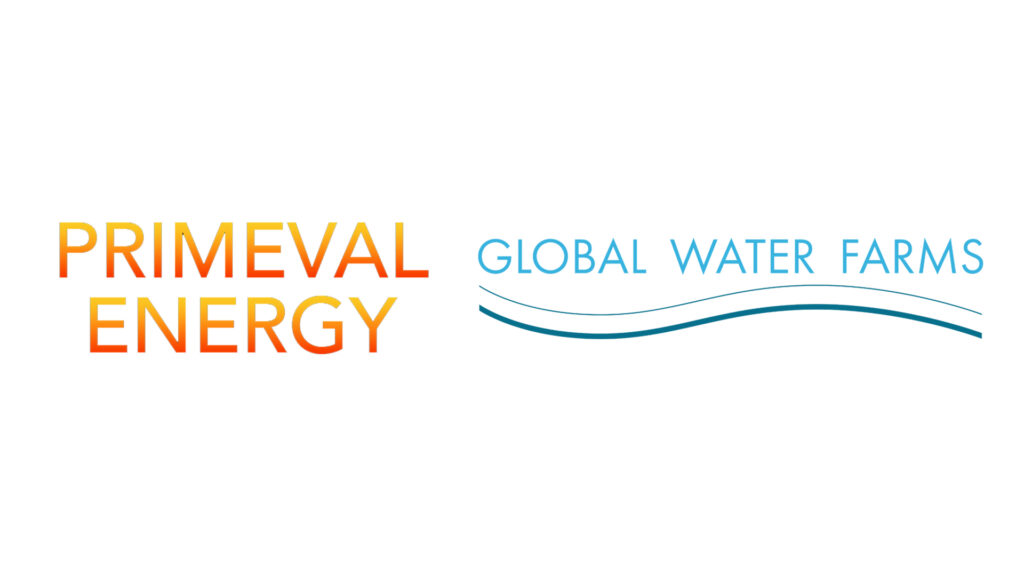Primeval Energy, GWF partner for geothermal desalination in California
Primeval Energy, GWF partner for geothermal desalination in California ThinkGeoEnergy - Geothermal Energy News


Primeval Energy and Global Water Farms Partner for Geothermal Desalination Project in Southern California
Primeval Energy and Global Water Farms have announced a partnership for a desalination project in Southern California using geothermal energy.
Introduction
Geothermal solutions company Primeval Energy (Primeval) has entered into a strategic partnership with Global Water Farms (GWF) for a Southern California desalination project. The project aims to address the water scarcity issue in the region while promoting sustainable development goals.
Project Details
- The Primeval team will provide geothermal assistance to the project, which will require considerable energy in the form of Combined Heat and Power.
- GWF aims to provide vast volumes of clean water to augment the flow of water in the Colorado River through desalination.
- GWF will use the salt by-product for the manufacture of salt-based construction blocks, creating a second environmentally focused business that lowers the demand for traditional cinder blocks.

Statements from CEOs
- “This strategic partnership with Primeval will provide the geothermal and drilling experience required to provide all the energy we require for our Salton Sea project. Following the successful establishment of our flagship location in Imperial County, we have potential to roll out the desalination / geothermal combination in water stressed locations internationally,” said Jon Becker, CEO of GWF.
- “The Primeval team combines geothermal and oil & gas expertise for field evaluation, project design, execution and management. I personally have spoken for years about the huge potential of partnering geothermal energy with desalination. It is incredibly exciting and gratifying to be working with a company of such bold ambition and foresight. The Salton Sea venture is an incredibly important stand-alone project. However, we have potential to duplicate the GWF / Primeval, desalination / geothermal partnership globally,” added Andy Wood, CEO of Primeval.
Technology Approach
Primeval Energy takes an unrestricted technology approach, allowing them to assess each project with an unrestricted, holistic perspective and offer tailored solutions based on the asset location and end-use. They offer flexible engagement models, providing everything from advice on project feasibility to assistance with establishing and operating geothermal facilities.
“As a result, we can assess a geothermal field anywhere and look at the whole picture. We have a geothermal ‘toolbox’ that delivers the potential to provide open or closed-loop solutions. This flexibility in conjunction with our holistic approach enables us to provide optimized design,” said Andy Wood in a feature published by the Eastern Daily Press.
Conclusion
The partnership between Primeval Energy and Global Water Farms for the geothermal desalination project in Southern California showcases their commitment to addressing water scarcity issues while promoting sustainable development goals. This innovative approach has the potential to be replicated globally, offering a more sustainable solution to water-stressed locations.
Source: Email correspondence
SDGs, Targets, and Indicators Analysis
1. Which SDGs are addressed or connected to the issues highlighted in the article?
- SDG 6: Clean Water and Sanitation
- SDG 7: Affordable and Clean Energy
- SDG 9: Industry, Innovation, and Infrastructure
- SDG 11: Sustainable Cities and Communities
- SDG 13: Climate Action
The article discusses a desalination project in Southern California that aims to provide clean water using geothermal energy. This addresses SDG 6, which focuses on ensuring access to clean water and sanitation for all. Additionally, the project requires considerable energy in the form of Combined Heat and Power, which relates to SDG 7, aiming to ensure affordable and clean energy for all. The partnership between Primeval Energy and Global Water Farms also contributes to SDG 9, as it involves industry collaboration and innovation in the form of geothermal solutions. The project’s focus on using salt by-product for the manufacture of construction blocks aligns with SDG 11, promoting sustainable cities and communities. Finally, the use of geothermal energy instead of fossil fuels for desalination supports SDG 13, which aims to combat climate change.
2. What specific targets under those SDGs can be identified based on the article’s content?
- SDG 6.4: By 2030, substantially increase water-use efficiency across all sectors and ensure sustainable withdrawals and supply of freshwater to address water scarcity.
- SDG 7.2: By 2030, increase substantially the share of renewable energy in the global energy mix.
- SDG 9.4: By 2030, upgrade infrastructure and retrofit industries to make them sustainable, with increased resource-use efficiency and greater adoption of clean and environmentally sound technologies and industrial processes.
- SDG 11.1: By 2030, ensure access for all to adequate, safe, and affordable housing and basic services and upgrade slums.
- SDG 13.2: Integrate climate change measures into national policies, strategies, and planning.
The targets identified are based on the specific goals mentioned in the article. The project aims to increase water-use efficiency through desalination (SDG 6.4), increase the share of renewable energy by utilizing geothermal energy (SDG 7.2), upgrade infrastructure for sustainable desalination (SDG 9.4), provide clean water as a basic service (SDG 11.1), and integrate climate change measures by using geothermal energy instead of fossil fuels (SDG 13.2).
3. Are there any indicators mentioned or implied in the article that can be used to measure progress towards the identified targets?
- Water-use efficiency: The article mentions that the desalination project aims to provide vast volumes of clean water to augment the flow of water in the Colorado River, indicating an increase in water-use efficiency.
- Share of renewable energy: The use of geothermal energy for desalination indicates progress towards increasing the share of renewable energy in the global energy mix.
- Infrastructure upgrade: The partnership between Primeval Energy and Global Water Farms implies an upgrade in infrastructure for sustainable desalination.
- Access to clean water: The project’s goal of providing clean water aligns with the indicator of ensuring access to adequate, safe, and affordable housing and basic services.
- Climate change integration: The use of geothermal energy instead of fossil fuels for desalination indicates the integration of climate change measures into the project.
The indicators mentioned or implied in the article include water-use efficiency, share of renewable energy, infrastructure upgrade, access to clean water, and climate change integration. These indicators can be used to measure progress towards the identified targets.
4. Table: SDGs, Targets, and Indicators
| SDGs | Targets | Indicators |
|---|---|---|
| SDG 6: Clean Water and Sanitation | 6.4: By 2030, substantially increase water-use efficiency across all sectors and ensure sustainable withdrawals and supply of freshwater to address water scarcity. | Increased volumes of clean water through desalination. |
| SDG 7: Affordable and Clean Energy | 7.2: By 2030, increase substantially the share of renewable energy in the global energy mix. | Utilization of geothermal energy for desalination. |
| SDG 9: Industry, Innovation, and Infrastructure | 9.4: By 2030, upgrade infrastructure and retrofit industries to make them sustainable, with increased resource-use efficiency and greater adoption of clean and environmentally sound technologies and industrial processes. | Partnership between Primeval Energy and Global Water Farms for sustainable desalination. |
| SDG 11: Sustainable Cities and Communities | 11.1: By 2030, ensure access for all to adequate, safe, and affordable housing and basic services and upgrade slums. | Provision of clean water as a basic service. |
| SDG 13: Climate Action | 13.2: Integrate climate change measures into national policies, strategies, and planning. | Use of geothermal energy instead of fossil fuels for desalination. |
Copyright: Dive into this article, curated with care by SDG Investors Inc. Our advanced AI technology searches through vast amounts of data to spotlight how we are all moving forward with the Sustainable Development Goals. While we own the rights to this content, we invite you to share it to help spread knowledge and spark action on the SDGs.
Fuente: thinkgeoenergy.com

Join us, as fellow seekers of change, on a transformative journey at https://sdgtalks.ai/welcome, where you can become a member and actively contribute to shaping a brighter future.








